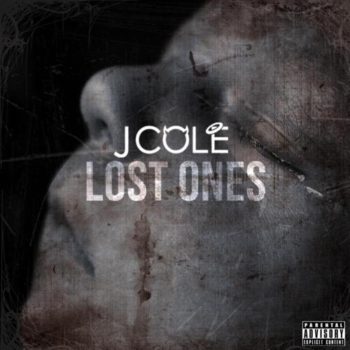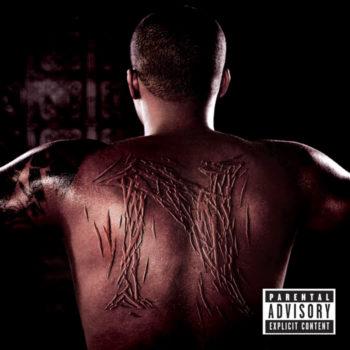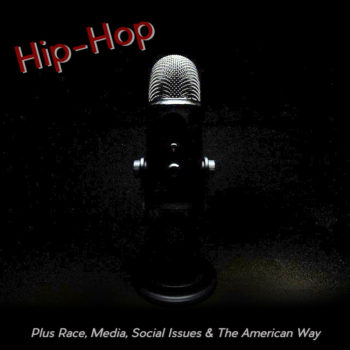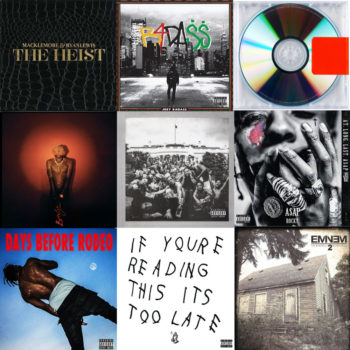With the release of Fashawn‘s Mass Appeal Records debut, I took the time to sit down and chat with the Fresno emcee to ask about what went into his newest album, The Ecology. Over the course of the conversation, I learned the correlations between Fashawn’s debut Boy Meets World and this new album, what it was like for him working with Nas and much more. The entire edited interview is available for stream on our Soundcloud, so if you would like to read along (or not read at all), listen there and be sure to grab The Ecology in stores!
Also, continue reading to read some questions Fashawn answered earlier today during an AMA session on Reddit, as well as the Mass Appeal documentary detailing the making of The Ecology.
STONE: So first I wanted to congratulate you on the new album The Ecology. I know you dropped it a little bit early on iTunes and you just got physicals out.
FASHAWN: Thank you – yessir, yessir.
STONE: Also, congrats on the Mass Appeal deal with Nas.
FASHAWN: Thank you, man.
STONE: What precipitated Nas signing you as the first artist to Mass Appeal Records?
FASHAWN: I don’t know. He was wanting to work with me for a while, but he didn’t know how exactly. He wanted it to be more than just giving me a verse and then we throw it out on the blogs and stuff like that. He wanted to actually get involved with my career as a whole. During that time, he was plotting on taking over at Mass Appeal. So once he actually cemented that in over there, one of the first things he did was come and grab me from the West coast. And I couldn’t have been happier, I mean, that’s one of my favorite emcees and one of the illest guys to ever do this. Yeah, that was a no-brainer for me, man. Plus at the time I was floating around the industry looking for a home for this album. Never in a million years [did] I think it would be executive produced by Nas – my sophomore album! Especially being a kid from the West coast, and more specifically from Fresno, you know, it’s not the premiere place to give birth to dope emcees.
STONE: Yeah that’s a huge look. So much has happened since your debut Boy Meets World came out back in ’09, from mixtapes to being listed as an XXL Freshman in 2010, and then with Nas. How does it feel to be where you are now versus back then around the time of Boy Meets World?
FASHAWN: Man, it feels good. I was just thinking about this shit earlier, I was like yo… You don’t appreciate times like this more than when you think back to eating top ramen for like breakfast, lunch and dinner. Not knowing where you’re going to sleep, not knowing where you next meal is coming from. That was me man, five years ago. That was me on Boy Meets World when I was creating that art. Now man…opulence, that’s the word. That’s the only word I can [use to] describe – opulence in abundance, I ain’t got to worry about nothing. It feels like I don’t even have a job. I get to wake up, get fly everyday and basically talk about myself in every interview, you know. That’s what interviews are, just talk about my art and what I created. That’s nothing, that’s a pleasure to me, I love describing what I created. So when I get to be an emcee, there’s no better feeling. Salute to everybody with office jobs, but my job enables me to travel the world and so the inspiration is infinite. I don’t know how to describe it; sometimes it’s so overwhelming just being able to continue to do this man. I thought after my first album that I would never have the opportunity to do this again. This album is like, just the feeling and the anticipation and just the work that we put into it was even like times ten compared to the first one.
STONE: Right. Yea it’s great, it’s amazing to see the change t hat’s happened since Boy Meets World to now. How do you feel the rap game in general has changed or evolved since your debut, whether you want to talk generally or maybe the West coast specifically?
hat’s happened since Boy Meets World to now. How do you feel the rap game in general has changed or evolved since your debut, whether you want to talk generally or maybe the West coast specifically?
FASHAWN: I mean rap is…I don’t know. Rap is a forever changing thing. It’s always what’s hopping the next year and who’s setting the trends the next year and who’s the hottest producer. And it’s always been like that. The sound in hip-hop really it changes like every year, every day. I just know that the stuff that I create, I try to just mirror those classic artists like the 2Pacs and the Biggies, and you know, I try to mirror like what their music meant to me. I try not to make the same kind of music, but I want my music to have the same integrity and I still compete with ghosts! [Laughs] You know what I’m saying? I’m still competing with ghosts out here. But the new music, my contemporaries, I love what they do. I love what they’re bringing to the game. The actual game will never change, but the sound might and the look might. But that’s why hip-hop was invented, man.
STONE: No doubt. Now how long have you been actively working on this project? Because at the end of last year you dropped FASH-ionably Late with The Alchemist and it was labeled as a prelude, but how long have you been actually making the songs that have come out on The Ecology?
FASHAWN: Yeah, actually I’ve been recording like the last two years, after I got done wrapping up This Generation and Champagne & Styrofoam Cups. After I got done campaigning and touring those, that’s when I really actually found the window of time to actually put down these records. So yeah, I’d say we started in 2013 officially, and that’s just went out until now, you know, we’ve been working on it until 2015, it’s release date. And there was times when I thought it was done, and we stretched the process out a little longer, but I’m glad we took the time that we did, I really am.
STONE: We did get a chance to review the album. We did get to listen to it and we really, really enjoy it. And I just wanted to thank you again for putting out the music.
FASHAWN: Aw man, I appreciate you, man. Appreciate the love.
STONE: Yeah, for sure. Now FASH-ionably Late with The Alchemist, was that a project of its own, or was it kind of like extras that maybe you were working with Alchemist on.
FASHAWN: Right, right. That was something that I put out just because…I mean, I love Alchemist as well, he’s one of my favorite producers, but I usually am more calculated, I don’t just put projects together just to put them out. But on this one, it was a pleasure to go back in with Alchemist and just continue what we started on The Antidote maybe five-six years ago. I never thought I’d get the chance to do that again with Al. This whole era in my life right now is really mirroring ’09, because in ’09 I put out The Antidote and then I dropped the Exile-produced Boy Meets World. And this time around, dropping the project with Alchemist first dropping the Exile joint on y’all again! It’s kind of weird how the stars are aligning again like this. We put that out because we originally promised my fans that they were going to get The Ecology on September 25th or 28th or something like that, sometime in September. We had to push the album back due to sample clearances and things of that nature. I wanted to get my mind off of The Ecology and somewhere else. I just wanted to stop thinking about that album because I put my blood, sweat and tears into the album. So when I got the opportunity to work with The Alchemist to make FASH-ionably Late, it was like the perfect thing, like I really needed to go somewhere else with my pen game. Just lyrically what I was doing, I was wigging a lot of emotional and personal records on the album, and that took a lot out of my spirit, man. So I wanted to have something I could have fun with and rap like mixtape Fash and just go in. So that’s what that was and it couldn’t have come at a better time, and it couldn’t have had a more appropriate title than FASH-ionably Late because the album was late, so we had to give y’all something in replacement.
STONE: Well both projects were most definitely worth the wait.
FASHAWN: Thank you.
STONE: The inspiration for the album’s title, did that come from the track of the same name off of Boy Meets World? Or was there a different meaning behind the title?
FASHAWN: Yeah, no absolutely. That song was arguably one of my favorites on the first album. It was a really definitive record on that album. We kind of like diagnosed me and Exile’s style together on that song. So it was like I wanted to expand on that concept and on that whole moment and make a whole moment with that title. That title always just looked heavy when I looked at it on paper or on the computer or anything, it was just a really strong word and I always wanted to redefine it myself. I got the chance to do that with this album, yeah, so I hope that answers your question.
STONE: Yeah, so that’s the title. So is it safe to say that pretty much the song “The Ecology” is like a prequel to what the album [turns] out to be like?
FASHAWN: Absolutely! Definitely, that’s the seed planted for the album. That’s the seed planted for the album, on the first album.
STONE: Yeah, that’s crazy. I feel like when I listen to [The Ecology], almost where you picked up, like you picked up right where you left off with Boy Meets World. That was, you know, your introduction into hip-hop. And now it’s like, to use your words, that was the seed and now it’s the growth and everything and that’s crazy. I don’t know if you planned that [laughs], but that’s a crazy concept, and I love it.
FASHAWN: Nah, I planned it out this way, man. I wanted the second album to sound like this or – I think everyone could agree with me – I wouldn’t have put out anything. That’s why I took so long with this one, it had to be this way, or I would still be holding onto it, and I’d still be working on it and chipping at it. But it had to have that feel and it had to feel like a continuum of what I started. The last song on Boy Meets World it was like a ten minute opus, and it really left the listener with a feeling like a really open feeling. It wasn’t like an ending of a story, it kind of felt a beginning of a story. With that in mind, I wanted to continue that story and continue that character’s life that people fell in love with on the first album. I wanted to continue that story and never lose the integrity of who that kid was and who that man is. And I wanted to bring you back to that character’s life on this album, opposed to just mixtaping it and just rapping about the coolest shit I could rap about. That type of shit only lasts a day or two, and [then] it flees, it’s gone. But real music like this, it last forever. I thought my first album – for five years, and that’s only one album – why n***** was trying to drop, uh what’s the word, like stretching themselves thin and trying to promote a bunch of shit. I try to make something that’s timeless and something that I know’s going to give me longevity in the game, rather than trying to stay relevant.
STONE: Right. Well you had a lot of mixtape releases between your debut – even before your debut – but between your debut and The Ecology, how do you feel this album stands apart from those mixtapes and other projects you’ve released like This Generation?
FASHAWN: I don’t know, I don’t think they compare to this album at all. I think the purpose for all of those things was, A: just to keep my name out there, just to stay out there with my contemporaries, and I say B: I was doing all those mixtapes trying to find what The Ecology would sound like, trying to find the next sound, trying to find how my music would fit next to whatever’s current, next to whatever’s hot. I had to figure out how to keep the same integrity of the message, but sonically how to evolve with the times as well so when you hear The Ecology it doesn’t sound exactly like Boy Meets World, it doesn’t feel like it’s 2009. But it still feels new even though some of the songs are real soulful and have a retro feel. You could tell it was invented in 2015 or 2014. That was something that just happened. I got my man Mike – @masteredbymike on Instagram or something like that – n***** don’t know the same guy who mastered my album is the same guy who mastered good kid, m.A.A.d. city for Kendrick Lamar, which is an album I feel like is one of the best albums to come out in ten years in rap. I think Mike had a real big hand in that just making the album feel new. Because there’s a lot of old samples as well, but it doesn’t feel like that, it doesn’t feel like an old-school hip-hop album, it feels like 2015. And I think it sits well with whoever’s hot right now or whatever’s the new thing.
STONE: Now, I do have the question that I believe everyone has been wondering: what is it like, and what was it like working with Nas on this album being that he was the executive producer?
FASHAWN: Ah man, it was like…it was weird, man. [Laughs] It was weird in the best way possible. It feel like I was sitting with an older version of myself. It was weird, me and Nas are so similar in so many ways in how we look at the world, and our perception on art and other players who played the game before us. Those conversations and those moments is what I value more and what I hold closer to my heart more than him actually being involved with the creative process as an executive producer. Just those moments I got to build with the god, man, those are moments you can’t get back. It was cool, he’s a real chill guy. It’s hard to make him laugh, but I think I might have mastered that. I think I know a couple n***** who can make Nas laugh. It was cool man, it was real cool. Getting any advice from him, any critique from him, I definitely took heed and that made the music that much better. Just having him there in person, it meant a lot.
 STONE: Yeah speaking on it the advice, I had read somewhere that Nas had listened to your project when you thought it was done and suggested that you rewrite a verse.
STONE: Yeah speaking on it the advice, I had read somewhere that Nas had listened to your project when you thought it was done and suggested that you rewrite a verse.
FASHAWN: Yeah, actually it was on the song “It’ll All Be Over,” which is a bonus song on iTunes. He was listening and he liked the first and the third verse on that song, but the verse in the middle it wasn’t sitting with him right. He was like “Yo…” – and this is me trying to do my Nas voice – he was like “Yo, we got to light though. The second verse, it doesn’t hold as much weight as the first and the third verse. It’s like the song is real important so you might want to re-approach it.” So I reply, “Are you sure? Do you want to hear it back one more time just to be sure?” Because I have no problem rewriting anything because Exile used to do that to me all the time on Boy Meets World, so I was kind of groomed like that anyway. But then I played it for him again. We’re both sitting back, we’re smoking and we’re listening and he laughed. He laughs at the end like, “Man, I’m bugging, I’m tripping. It’s fine, kid.” He said, “That was flawless, kid.” And we just started laughing, you know what I mean [laughs]? But yeah, that’s what happen and I’m glad that song is out so I can tell that story over and over again, I get a kick out of it.
STONE: [Laughs] Now did he offer any other – you said he gave advice – did he offer any specific insight that you feel ultimately changed the finished product?
FASHAWN: I would say when he told me don’t be afraid to be honest. Don’t be afraid to be too honest with people, because people are going to dig for it anyway, but it’s better that you give it to them before a blog does or a headline does, you know, keep it 100. And make sure your music actually mirrors your life like when people see you, that’s an important thing. But it’s just so much, man, that guy is wise beyond his years. Sometimes he’ll tell me some shit and it won’t hit me, it won’t make sense to me until like a month later, like “oh, that’s what he meant.” And I mean that’s how his lines are, that’s how some of his rhymes are. Some lines from Illmatic still hit me like, “oh fuck! That’s what he meant! Like “the Buddha monk’s in your trunk, turn the bass up.” I’m like, oh that’s what that meant. Conversations with him are no different.
STONE: Damn, that’s crazy. Feature-wise, both your debut and this album, you’re usually pretty light on the features. You pretty much hold your own throughout most of the project. But one thing that I didn’t see on this project that I did see on Boy Meets World, and I wanted to ask about it, was the fact that Blu and Evidence, who you’ve been known to collaborate with weren’t on this album. Did you work with them at all while drafting this album, or was there something else going on?
FASHAWN: Yeah, absolutely! Absolutely, man. You can check their albums and their projects, like Blu I’m on the project he did with Bombay; we got a song called “Boyz N the Hood” [with] me, him and the homie from Pac Div and I think another L.A. artist. And me and Ev did “The Beginning.” We did that during this whole process, but those songs weren’t intended for The Ecology. I already knew the sound that I was going for, and those songs that me and my homies created in that era just didn’t really fit the direction that I was going. That’s the only reason why those two specifically didn’t really end up on this album. Those are my brothers, though, we still talk all the time. Like I was just at Evidence’s crib the other day just hanging out. I mean, we always [are going to] work, even if they didn’t end up on this album, they’ll probably end up on…like Ev is on FASH-ionably Late, he’s the only collab, the only other emcee. I mean, it’s nothing man. We got the camaraderie [and] it’s beyond getting featured on each other’s albums.






